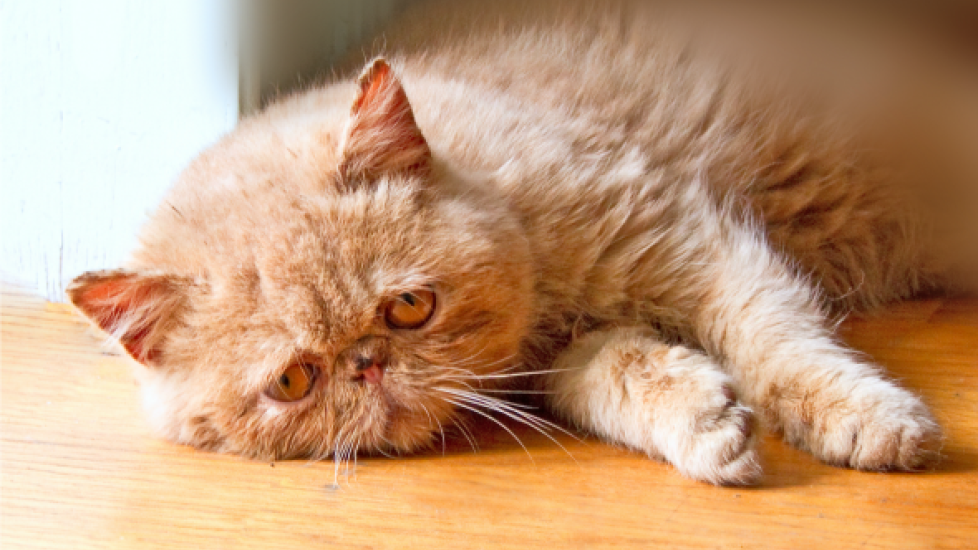Ethanol Poisoning in Cats
Ethanol Toxicosis in Cats
Exposure to ethanol, either orally or through the skin, is a common source of toxicity in household pets. Depression of the central nervous system is typical of ethanol poisoning -- expressed as drowsiness, lack of coordination or loss of consciousness. Other effects may include damage to body cells, and symptoms such as incontinence, slowed heart rate, and even heart attack.
Ethanol poisoning in cats can occur as a result of exposure to dyes, inks, disinfectants, mouthwashes, paints, perfumes, pharmaceuticals, gasoline, and certain beverages.
Symptoms and Types
Symptoms will vary depending on the amount of ethanol ingested, and whether your cat's stomach was full or empty. The main symptom is a depressed central nervous system, which may develop 15 to 30 minutes after ingestion on an empty stomach, and up to two hours when ingested on a full stomach.
Other symptoms include urinating or defecating involuntarily. Higher doses of ethanol ingestion can bring about behavioral changes ranging from depression to excitement, decreased body temperature (hypothermia), slow reflexes, and flatulence if bread dough is the source of ethanol (see causes, below). Signs of advanced ethanol poisoning include depression, slowed breathing and heart rate, an increase in total body acid (metabolic acidosis), and heart attack. If left untreated, this can result in your cat's death.
Symptoms of ethanol poisoning may also be similar to early stages of antifreeze (ethylene glycol) poisoning.
Causes
Ethanol poisoning can occur from the ingestion of a variety of products. Fermented products such as bread dough and rotten apples, food that a cat can easily find while digging through the garbage, is one source of toxicity. Poisoning can also occur when beverages, commercial products, or medications containing alcohol are spilled and lapped up by an animal. A toxic reaction from exposure to alcohol-containing products through the skin is also possible.
Diagnosis
Your veterinarian will be able to conclusively diagnose ethanol poisoning via blood tests that measure blood-ethanol concentrations in your cat's bloodstream. A urine test for low blood sugar (hypoglycemia) may also point to ethanol poisoning, as well as a pH test for measuring heightened levels of acid in the body.
Treatment
Depending on the severity of symptoms displayed, treatment for ethanol poisoning varies. Intravenous (IV) fluids should be provided for dehydration, and medication may be administered to alleviate central nervous system depression, as well as to inhibit the metabolism of alcohol.
In more severe cases, if your cat is having respiratory problems, artificial ventilation to aid breathing, such as with an oxygen mask, may be necessary. If a heart attack has occurred, cardiac therapy should be attended to first.
Living and Management
Symptoms should subside within eight to twelve hours if the initial treatment is successful. Your veterinarian will follow up the initial treatment with blood and urine pH measurements, and will check for evidence of abnormally high body acidity until the danger has passed.
Prevention
The only way to prevent ethanol poisoning is to make sure that your cat is not exposed to ethanol containing products such as paint, perfume, mouthwash, fermented foods, and other products containing ethanol. All ethanol containing products should be kept out of your cat's reach – preferably in locked cabinets or secure containers.
